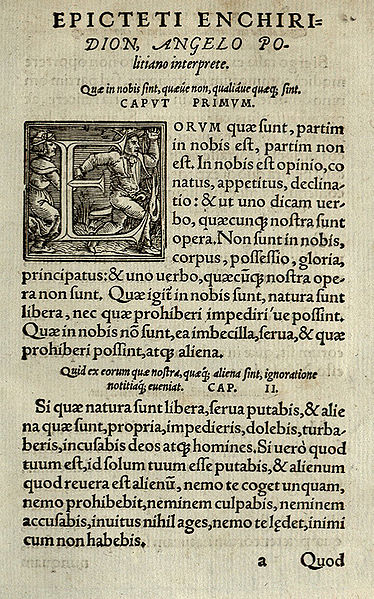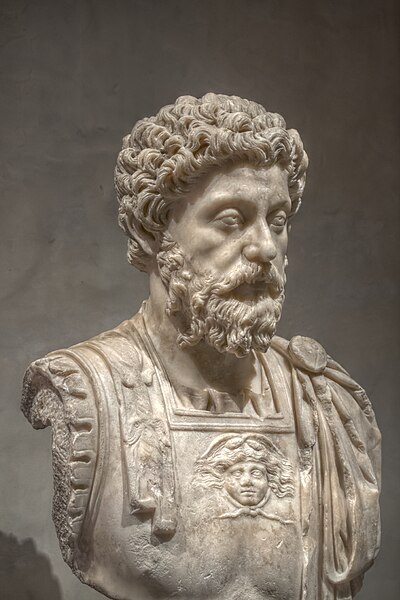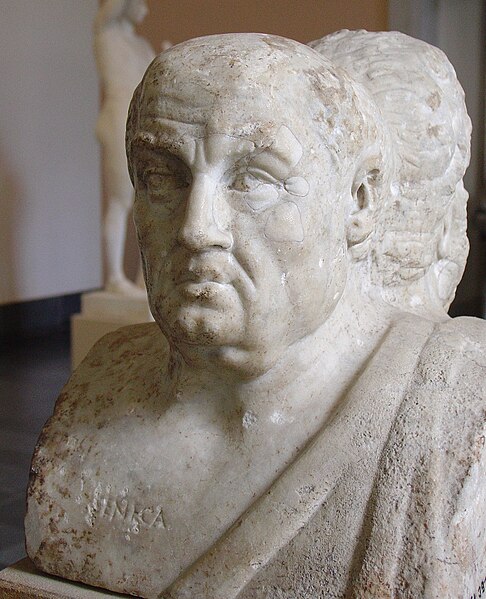The Enchiridion or Handbook of Epictetus is a short manual of Stoic ethical advice compiled by Arrian, a 2nd-century disciple of the Greek philosopher Epictetus. Although the content is mostly derived from the Discourses of Epictetus, it is not a summary of the Discourses but rather a compilation of practical precepts. Eschewing metaphysics, Arrian focuses his attention on Epictetus's work applying philosophy to daily life. Thus, the book is a manual to show the way to achieve mental freedom and happiness in all circumstances.
Chapter 1 of the Enchiridion of Epictetus from a 1683 edition in Greek and Latin
Latin translation by Angelo Poliziano (Basel 1554)
Stoicism is a school of Hellenistic philosophy that flourished in Ancient Greece and Ancient Rome. The Stoics believed that the practice of virtue is enough to achieve eudaimonia: a well-lived life. The Stoics identified the path to achieving it with a life spent practicing the four virtues in everyday life: wisdom, courage, temperance or moderation, and justice, and living in accordance with nature. It was founded in the ancient Agora of Athens by Zeno of Citium around 300 BC.
A bust of Zeno of Citium, considered the founder of Stoicism
Chrysippus, the third leader of the Stoic school, wrote over 300 books on logic. His works were lost, but an outline of his logical system can be reconstructed from fragments and testimony.
Marcus Aurelius, the Stoic Roman emperor
A bust of Seneca, a Stoic philosopher from the Roman empire who served as an adviser to Nero






